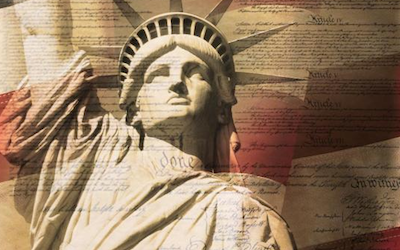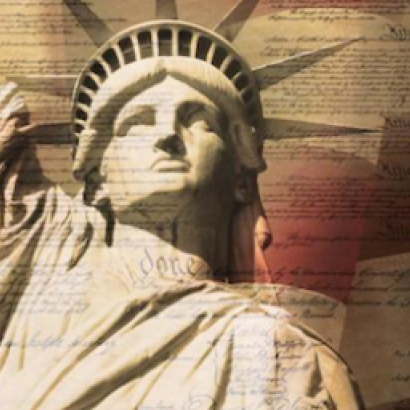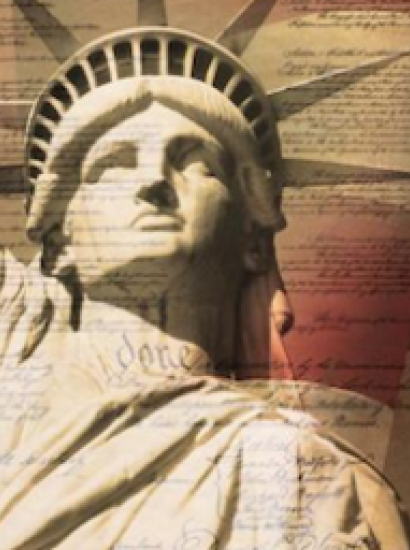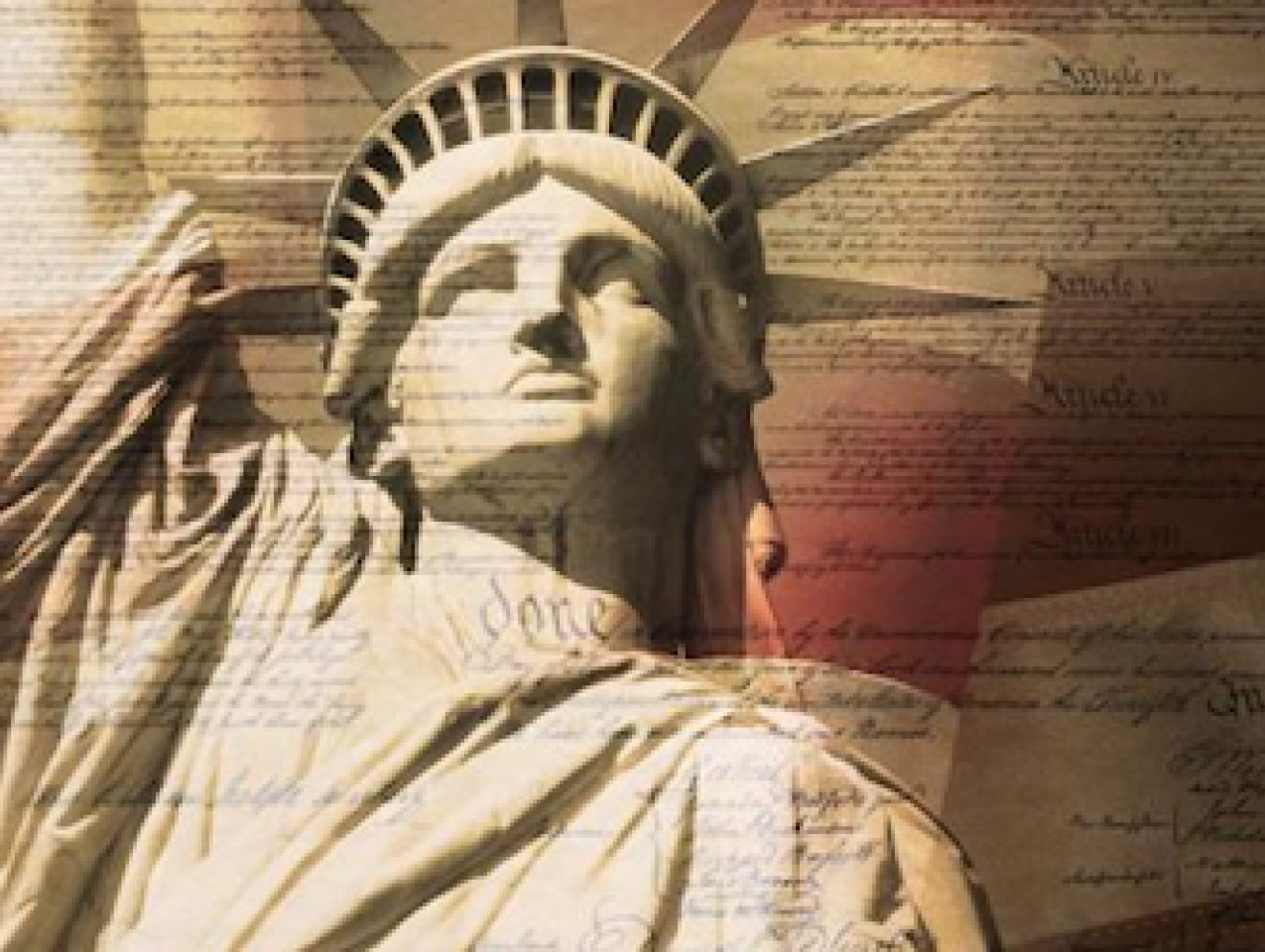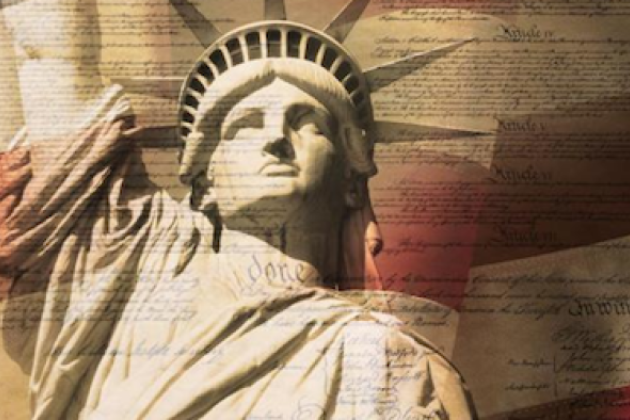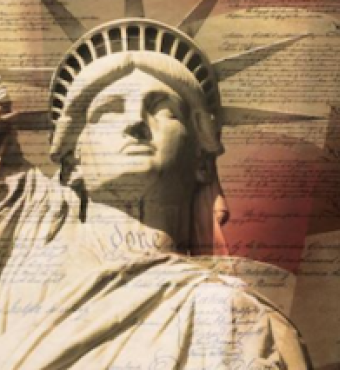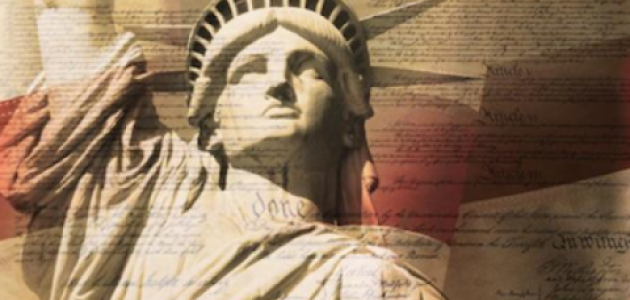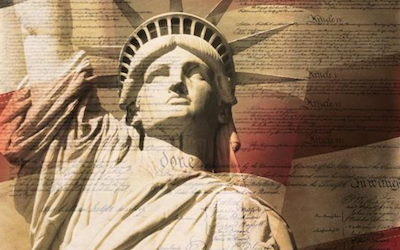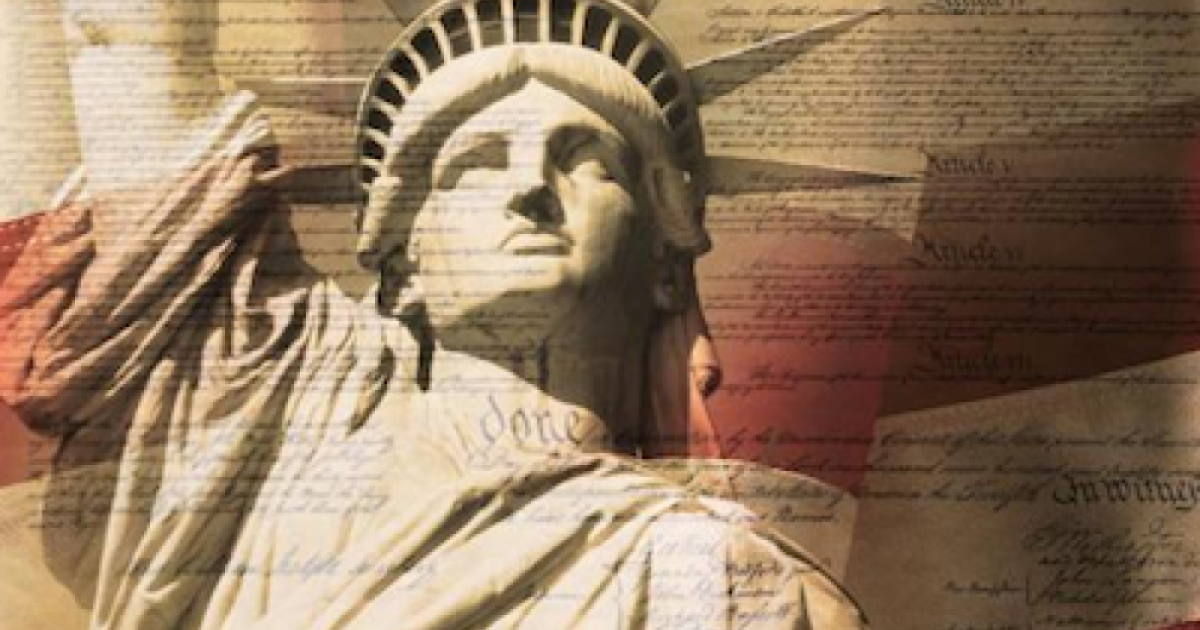- Law & Policy
- Civil Rights & Race
- History
A typical liberal objection to conservatism is to its anti-intellectualism and populist vulgarity. People who vote for conservatives and favor limited government lack or destroy refinement, it is said, and ignore evidence and argument. They enjoy guns, doubt heated claims about global warming, and listen without (sufficient) irony to country music. They occlude and diminish excellence of the mind.
One form this attack on supposed conservative irrationalism takes is to decry the vulgarity or mediocrity of liberal democratic art and music. This criticism is heard less than it once was, but is perhaps increasingly valid nonetheless. One objection to regimes of equal liberty is that they weaken the conditions of leisure, culture, and high aspiration that are vital to spiritual excellence. To conserve liberty is to conserve mediocrity, or so it is thought.
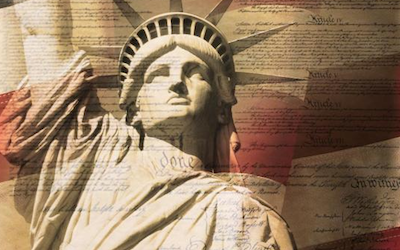
Photo credit: Hoover Press
This dominance of mediocrity, one might reply, cannot exclusively or primarily be blamed on those who preserve equal liberty. It is furthered today by egalitarianism, multicultural diversity, and disbelief in the reasonable defense of equal rights. These standpoints result from today’s liberals. Our vast diversity does leave room for excellence, moreover; the difficulty is not that excellence is fading but that it has decreasing influence over culture generally.
Regressing Toward Mediocrity
The source of the argument that links liberty to mediocrity is both theoretical and empirical. How could a devotion to equality, even as equal rights, protect and develop the inequality vital for excellence? How could materialism advance the spirit? From where could arise the necessary devotion and training?
The empirical argument simply asks one to look around. Especially from the founding of the United States until the First or even the Second World War, who would not say that our art and music was inferior to the products of a less democratic Europe?
One might counter this empirical argument in several ways. One is that these claims conveniently ignore natural science, not merely as the source of technology but as a mode of thought. And it is liberal democracies that spearhead scientific thought. The counterclaims that liberal regimes are now not the only homes of science, and that science is now more a matter of group than of individual effort, do not eliminate the presence of enormous individual scientific and mathematical excellence in liberal democracies.
Perhaps these efforts once justified themselves solely as serving business and defense, but they now have life and power of their own. A second reply concerns beauty—music and the arts. There is surely more access to refined music and art than there once was, with every city worshipping its museums, supporting music, and housing artists, and especially, musicians, who have remarkable technical skills.
In reply, one suggests that whatever the technical skills, the substance of today’s art and music, especially what we newly produce, is declining. Contemporary art is trivial or outlandish, and contemporary music is gimmicky, shallowly repetitive of older styles, or unlistenable. Support for fine music is in fact weakening.
A reply to this is that any decline in fine music and art is largely a matter of passing taste. Just as fine music recovered from atonal excess and architecture from the dominance of the unembellished and the ugly, so too will art and music assert and continue to reassert finer forms. Fine art will continue to exist in strength despite the surrounding cacophony and ebbs and flows of opinion.
This leads one to suggest next that whatever the empirical and theoretical overstatements about the decline of excellence, it is at least true that although the excellent may survive, it is surrounded and dwarfed by the vulgar and unrefined. It is at most the private interest of a few. When some piece of art becomes a sensation, it is quickly vulgarized and its true rank ignored. The issue is not so much the disappearance of the excellent as its unimportance in the way of life fostered by liberty.
Of course, truly grasping the excellent may always have been the preserve only of the few, although it seems that the “popular” was often deeper than it is now, more directly influenced by the excellent, or itself excellent. The true issue is that the few no longer form the culture but are only one segment among many. The result is that the fine, even if we continue to recognize it, will fade, at least to the degree that it needs the support of the whole.
But to what degree is this? Need the support be more than our general freedom of action combined with wealth? The spread of wealthy classes across the globe will perhaps be a source of sustenance for the arts or even of demands for (expanded) government funding for them.
On the other hand, current support of the excellent may result more from habit and tradition than from genuine appreciation that is still growing. The issue is not just freedom and wealth, but the training and education of the wealthy. Without separate leisure classes and without cultures that prize the spirit, education will weaken and public support will fade. Wealth and freedom will not be enough.
If so, preserving and encouraging the fine and refined may, in some areas (say, music), largely be a private, limited, matter. But there is no reason to believe that given the enormous number of private choices and technological possibilities, they will disappear altogether. In some areas, say, visual art, they may well hold their own. Moreover, training and education need not remain in their current depression.
The Role of Education
Do or must regimes devoted to liberty diminish serious education? The short answer is that they need not, although they do now. They need not because a link exists between liberty and liberal education. Authoritative self-direction suggests that no one blocks me in what I seek; this is consistent with responsibly securing equal rights. It also suggests that I can see and consider the possible goods I might choose, and that my understanding can grasp the general conditions for which I could take responsibility. Liberty requires more than appropriate lack of external limits and restrictions. It requires an expansive mind if it is to be true self-direction.
For much expansiveness, liberal education is beneficial if not necessary. This is a chief reason why liberty and enlightenment go hand in hand. This union also is meant to decrease the influence of religion and of ascription generally. Liberal education is one cause of the weakening of the implicit power of traditional institutions.
Liberal education and, especially, mass education beyond economic need seems nonetheless to counter excellence precisely because it is so widespread. What could it mean to teach literature or philosophy seriously to so many who are apparently unable to give them the subtle attention they deserve? Moreover, education’s tendency to try to be useful seems exacerbated in liberal democracy. The emphasis on material expansion and technology means that advanced education is largely technical—agricultural, commercial, legal, and scientific.
Yet, this emphasis was once compatible with a deep grasp of our political principles. In fact, this grasp seemed to exist even with grammar or secondary education alone. The technically-minded founders and the technically-minded Lincoln are obviously unsurpassed by anyone today. And even at a more general level, the notion that The Federalist was meant to sway votes and be widely read would bemuse or frighten today’s political consultants and advisers.
By what standards, indeed, could one claim that advanced scientific and economic education in liberal democracies is mediocre? The issue is more with the substance of today’s liberal education than with a necessary mediocrity caused by regimes of equal liberty, although the spread of education and the dominance of the material are always significant.
The difficulty with today’s substance is linked to the causes of the misunderstanding of rights. We claim that important matters are historically or culturally variable in their meaning and truth, random results of struggles for power, or inherently and fully relative. With varying degrees of sophistication, such views become dominant and affect the teaching and study of history, literature, philosophy, politics, sociology, psychology, and even economics.
This historicism distorts our understanding of rights and dissolves the energy we should direct to other important studies. What sensible person would spend time exploring difficult matters or learning to choose what is best if everything significant is a variable matter of accident, opinion, and imposition?
These relativistic views work in tandem with contemporary liberalism’s emphasis on equality, groups, the dispossessed, and the disadvantaged. Their situation is fully undeserved, it is claimed, because they have been overpowered by force and fraud, or because nothing is deserved in any event. Their truths and culture are as true and high as anything else. Given these liberal views, one then also understands the conservative preference for more traditional and serious education.
Despite links between liberal democracy and liberal education, it is wrong to reduce the intellectual to the political or to explain the political solely in terms of the intellectual. One might attempt to conserve excellence in education whatever the politics.
Counter-trends to those I just discussed exist in higher academic life somewhat apart from politics, and one hopes that they will make their way to secondary education, as have the trends they try to meet. Moreover, our concern about diminished literacy and numeracy do not accord with the relativism we otherwise profess.
How Education Can Safeguard Excellence
One might wonder what constitutes excellence in education. This question is significant beyond education. It goes to the problem of what we choose, of how we best exercise natural rights. Choosing well is a question of virtue and talent but also of traditions, institutions, and expectations. Some goods are naturally better to pursue than others or some choices more sensible than others.
“Better” means an orientation toward goods that satisfy and form human powers, directly and indirectly. Something good is useful, beneficial, or helpful; these characteristics are in the end directed to what is fully satisfactory, the best, the excellent. In general, what is good brings out human reason, the passions intelligently organized, and powers such as wonder, laughter, and curiosity, reasonably directed. What is most important to know, most natural, most beautiful, and most just, taken together, is what is best. Our orientation to these excellences and living within them is what is most satisfactory for us.
The substance of such goods is not self-evident. They are disputable in their nature. What, after all, is beauty? Not only are they disputable, they are not always visibly coherent. Is my love for this one and these few simply compatible with just devotion to the country? Nonetheless, such disputes do not obviate the facts of significant agreement: what is beautiful is some combination of what stands out, elevates, pleases, and fits, whatever the disputes. The philosophical examination of such questions is itself the fullest life, as Plato and Aristotle teach us.
Natural freedom and choice are implicated in enjoying genuine goods. Moreover, the practical reason involved in exercising one’s responsibilities (one’s tasks as objects of virtue) is substantial. We can therefore experience a general availability and expression of what is good in many of our contemporary satisfactions. This general availability, however, is also shaped today by goods grasped as objects of equal desire and, therefore, by their resultant equivalence in choiceworthiness.
How we spend our time is judged permissively and equally. What is common to us are virtues and liberty, but also a certain flatness and sameness in what we enjoy. The difference between more and less wealth is primarily more of the same goods (more and larger houses, say), not differences in the complexity and range of goods.
This equality and flatness of satisfactions—each tends to be understood so that it is available to be purchased or experienced by all—diminishes what is high. We have discussed this with the arts. Here the key point is that formal or intellectual education is central to preserve serious knowledge of some goods beyond this flatness and to direct us toward experiencing them.
If we are to conserve excellence it is essential to preserve education as an opening to what is truly good. In fact, this orientation can belong together coherently with a deep or proper understanding of rights. Education is a central place (together with family) where people’s hopes can be elevated—something especially vital in a country where serious aspirations, difficult enough to find to begin with, are often directed toward the trivial.
There are no magical ways to overcome the degradation of liberal education, but some measures help. We have attempted them with some success in the past quarter century. Pockets of serious study and scholarship must continue, as they can when enough schools are urged to be serious and supported in their efforts.
Government intrusions in speech and selection must be fought at every step. Responsible people must demonstrate the courage of their convictions and take appropriate risks and stands, practically as well as on paper. One must try to keep beachheads in elite institutions and shame those who place excellence under the thumb of politics, or academic narrowness and fashion.
Elite institutions, however, are not the only places where we can find and support fine students and faculty. Special programs should make serious work available to those who lack it in their own schools. Law students and faculty should continue to organize against the dominance of politicized law, and against the dominance of narrow professionalism. The idea in all these measures is to protect serious questioning and examination, to defend the constitutional understanding and practical common sense that should surround law and government, to question the reigning historicism, relativism, and dogmatism, and to grasp the genuine equality and freedom (i.e., of rights) we should protect. It is hard to deal with entrenched academics but hardly impossible.
Excellence is difficult to conserve in any circumstance and liberal democracy poses special challenges to it. These challenges are real but we can navigate among them in the ways I have discussed.
Editor's note: The essay above is adapted from the author's book, Conserving Liberty (Hoover Press).







